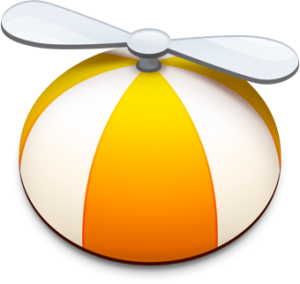Dev C++ Update History
As of June 2011 Orwell, a developer independent from Bloodshed (the original developers of Dev-C), is releasing improved and updated versions of Dev-C. Therefore, it is not recommended to stick with the old Bloodshed Dev-C versions. Consider upgrading to for example: Orwell Dev-C is free, open-source, ships with a 64bit compiler including the latest resources like the Windows 7 API. Dev-C is a free full-featured integrated development environment (IDE) distributed under the GNU General Public License for programming in C and C. It is written in Delphi. It is bundled with, and uses, the MinGW or TDM-GCC 64bit port of the GCC as its compiler. Jan 08, 2018 How to Reset Dev C default Settings. Restore default settings in Dev C. Dev C plus plus is an IDE for writing programs in C and C. Learn how to reset default settings in Dev C.
Hello insiders, today we’re releasing build 83.0.478.5 to the Dev channel. This is our Beta release candidate for major version 83, and since it’s also not that much newer than last week’s Dev channel build, it’s a relatively light week this week in terms of changes. Update the question so it focuses on one problem only by editing this post. Closed 5 years ago. I'm looking for a way to get browsing history from Internet Explorer using c code, other browsers uses databases, but how about IE? 81 rows - Beta updates contains packages that update the latest release to the latest prerelease.
Because it makes you able to set limits on usage.  You can also set rules to handle the bandwidth usage. You can make a list of apps that can connect to the network. Hence you can also set time limits for network usage.
You can also set rules to handle the bandwidth usage. You can make a list of apps that can connect to the network. Hence you can also set time limits for network usage.
Dev C++ Program Download
Shortly thereafter, he began work on 'C with Classes', which as the name implies was meant to be a superset of the C language. His goal was to add object-oriented programming into the C language, which was and still is a language well-respected for its portability without sacrificing speed or low-level functionality. His language included classes, basic inheritance, inlining, default function arguments, and strong type checking in addition to all the features of the C language.
The first C with Classes compiler was called Cfront, which was derived from a C compiler called CPre. It was a program designed to translate C with Classes code to ordinary C. A rather interesting point worth noting is that Cfront was written mostly in C with Classes, making it a self-hosting compiler (a compiler that can compile itself). Cfront would later be abandoned in 1993 after it became difficult to integrate new features into it, namely C++ exceptions. Nonetheless, Cfront made a huge impact on the implementations of future compilers and on the Unix operating system.
In 1983, the name of the language was changed from C with Classes to C++. The ++ operator in the C language is an operator for incrementing a variable, which gives some insight into how Stroustrup regarded the language. Many new features were added around this time, the most notable of which are virtual functions, function overloading, references with the & symbol, the const keyword, and single-line comments using two forward slashes (which is a feature taken from the language BCPL).
In 1985, Stroustrup's reference to the language entitled The C++ Programming Language was published. That same year, C++ was implemented as a commercial product. The language was not officially standardized yet, making the book a very important reference. The language was updated again in 1989 to include protected and static members, as well as inheritance from several classes.
In 1990, The Annotated C++ Reference Manual was released. The same year, Borland's Turbo C++ compiler would be released as a commercial product. Turbo C++ added a plethora of additional libraries which would have a considerable impact on C++'s development. Although Turbo C++'s last stable release was in 2006, the compiler is still widely used.
In 1998, the C++ standards committee published the first international standard for C++ ISO/IEC 14882:1998, which would be informally known as C++98. The Annotated C++ Reference Manual was said to be a large influence in the development of the standard. The Standard Template Library, which began its conceptual development in 1979, was also included. In 2003, the committee responded to multiple problems that were reported with their 1998 standard, and revised it accordingly. The changed language was dubbed C++03.
In 2005, the C++ standards committee released a technical report (dubbed TR1) detailing various features they were planning to add to the latest C++ standard. The new standard was informally dubbed C++0x as it was expected to be released sometime before the end of the first decade. Ironically, however, the new standard would not be released until mid-2011. Several technical reports were released up until then, and some compilers began adding experimental support for the new features.
In mid-2011, the new C++ standard (dubbed C++11) was finished. The Boost library project made a considerable impact on the new standard, and some of the new modules were derived directly from the corresponding Boost libraries. Some of the new features included regular expression support (details on regular expressions may be found here), a comprehensive randomization library, a new C++ time library, atomics support, a standard threading library (which up until 2011 both C and C++ were lacking), a new for loop syntax providing functionality similar to foreach loops in certain other languages, the auto keyword, new container classes, better support for unions and array-initialization lists, and variadic templates.
Written by Albatross.